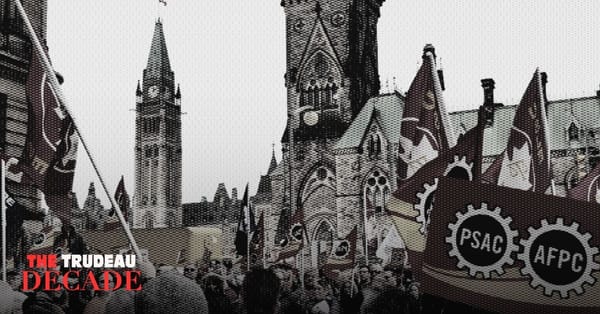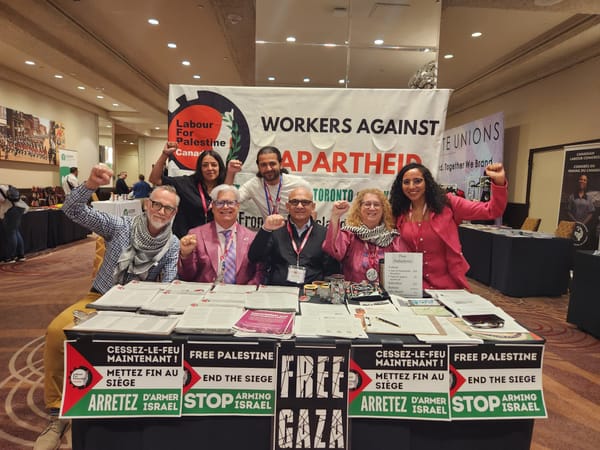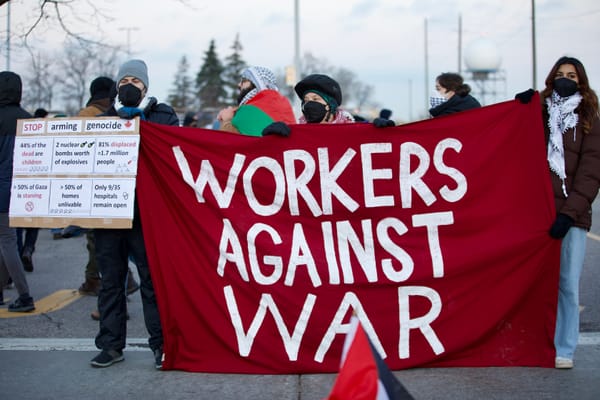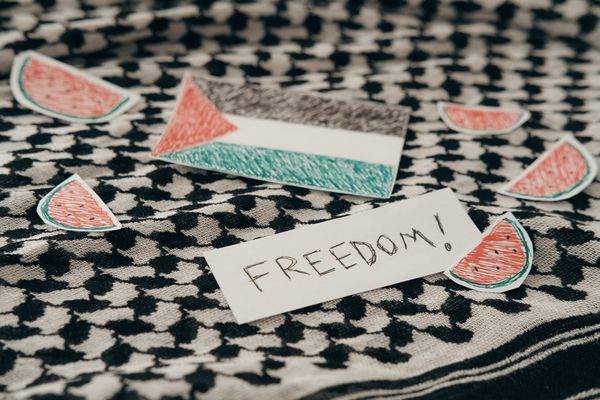On September 13, British Columbia introduced its version of the vaccine passport system. The B.C. Vaccine Card, which will run until at least January 2022, restricts access to high-transmission activities to people who have been vaccinated. Those over 19 will also have to show two pieces of ID.
The passport scheme is relatively similar to Quebec’s: residents apply through a government portal, putting in their provincial health number, date of birth and the date of either their first or second vaccine. This generates a personal QR code that acts as the vaccine card, with the individual’s name and vaccination status attached.
Vaccine passports themselves are a good idea. They help protect workers, by lowering how much time they spend interacting with unvaccinated (and thus more contagious) people. And mandating the passports provincially means that everywhere is on the same playing field, as opposed to leaving it up to businesses to come up with protocol on their own. There’s even some evidence suggesting the B.C. vaccine pass has encouraged hesitant people to get vaccinated: it was announced on August 23, and there was an 88 per cent increase in vaccine appointments booked that day compared to the previous week.
And yet, the B.C. government has still managed to implement the vaccine cards in a way that will make the lives of workers more difficult. Here are some of the many issues with the vaccine card rollout.
B.C. Left The Practicalities Until The Last Minute
The province outlined the vaccine card’s specifics on September 7 — two weeks after its announcement, but less than a week before it came into effect. The interim period was a scramble as businesses and workers tried to figure out what to do. That short window was enough time for people to identify flaws with the vaccine card system, but not enough time for any of those issues to be fixed.
One major issue is that there’s no exemption for people who have valid medical or religious reasons not to be vaccinated. Unhoused people, who are unlikely to have photo ID, won’t be able to sit in cafes to escape the cold, even if they’ve been double-vaxxed. Temporary workers who don’t have a B.C. health number will not be able to apply. And trans or gender-diverse people may find that the pass deadnames them, or that it doesn’t match the name on their IDs.
In other words, the steps put in place to try and prevent willingly unvaccinated people from gaming the system will end up impacting those that are vaccinated, or unwillingly unvaccinated.
Workers Will Face More Abuse And Harassment
The past 18 months have been difficult for workers.
B.C. never had an official lockdown: many restaurants stayed open offering delivery-only, and even service workers who did lose their jobs were largely re-hired within a few months in 2020. Through the second, third and now fourth wave, there have never been restrictions on retail or personal services. The closest was when restaurants and gyms had to navigate third wave measures this spring: indoor dining was banned for almost two months, and indoor exercise classes were suspended.
Workers have long been dealing with people who won’t comply with public health orders. Take masks, which have been recommended, then mandated, then optional, then mandated again. Some workers report being filmed by anti-maskers, who livestream their taunts or upload videos later. Other workers have been threatened with spurious lawsuits, or physically assaulted. In the United States, at least four frontline workers have been killed in mask-related disputes.
The vaccine card is mandatory for indoor sports and cultural events, bars, clubs, cinemas, and organized events like weddings or choir rehearsals — so servers, hosts, gym workers, venue staff, security guards, and cinema ushers all have to wrestle with the plan’s practicalities.
B.C. Provincial Health Officer Bonnie Henry has recognized that workers face disproportionate abuse from small but vocal parts of the population. Her response on September 7 was to tell them, “Let’s get angry at this virus, not at each other. Don’t take it out on that business, take it out on the virus.” A week later, Henry said workers enforcing the program “are deserving of respect, and they’re deserving of our care” while, in a strange tonal shift, also repeating her line on anti-vaxxer anger: “Don’t take it out on the business, take it out on the virus.”
In Quebec, where vaccine passports came into effect on September 1, some restaurants are struggling to adapt. A Global News story centred on restaurant owners who complained about the cost of hiring extra staff, as well as a decline in business. For servers and bartenders, whose income is supplemented by tips, fewer patrons equals less earnings. It remains to be seen whether businesses in B.C., particularly in areas where vaccine coverage is lower, see any drop-offs.
Workers Can’t Rely On Enforcement To Help Them
Technically, breaking the Vaccine Card law can get you fined — $230 or $575 for individuals, and $2,300 for businesses or event organizers. So, there’s a legal recourse for workers if they’re confronted by an aggressive anti-vaxxer. But besides the ethical qualms many workers have about calling the police, there are also practical issues: the police are useless. It can take them hours to arrive on a call-out (by which time any harasser will likely have left), and they rarely issue tickets.
According to the CBC, in Vancouver, fewer than one in five COVID-19 related calls to police between January and May resulted in a fine; that dropped to one in 50 for Prince George, and one in 231 for Kamloops. If police simply ask the unvaccinated customer to leave, there’s nothing to stop them from coming back or choosing a different business to yell at.
It shouldn’t be normal to be shouted at by a stranger in the place where you work. It shouldn’t be normal to get screamed at until you cry. It’s unfathomable that this is happening already to underpaid and underappreciated workers — and that they’re bracing themselves for more of it.
The province has promised that it won’t be solely up to workers to enforce the vaccine card law, claiming it will be “at the discretion of enforcement officers, including police, liquor and cannabis inspectors, gambling investigations and conservation officers.” However, a Canadian Press article from September 4 quoted Health Minister Adrian Dix admitting “there are going to be issues around enforcement.”
The same story also quoted a police representative who said, “Police will obviously be available to assist in those circumstances or cases where it might escalate. The default should not be the police.” The default should never be the police. But the police have also shown they don’t particularly care about workers being harassed on the job. And admitting that they don’t have a plan for dealing with belligerent anti-vaxxers shows the government doesn’t really care about service workers, either.
Workers Are Being Scapegoated For The Lack Of Exemptions
The province has recognized that service workers can’t do everything: they aren’t capable of making judgements over what counts as a valid medical or religious reason for not getting vaccinated. During the vaccine card announcement, Henry said, “It’s not of course practical for somebody who’s a server at a restaurant to be assessing whether somebody has a valid reason why they should be in [the restricted venue] or not.”
That is true. But this was also offered in response to a question about whether the province would reconsider its current no-exemptions policy. Henry’s answer implies that the only thought the government had on the matter was relying on service staff to decide exemptions, when obviously that needs to be done at a systemic level.
Christine Van Geyn of the Canadian Constitution Foundation argues, “Accommodation is easy and could simply be proof from a physician that the person cannot get vaccinated.” With the existing system, an exemption could look like speaking to a doctor or specialist and having them fill in a provincial government form. This would then provide you with a valid QR code to allow you to access non-essential spaces. The current vaccine cards display “no record found,” “partially vaccinated” or “vaccinated” as statuses; including “exempt” would unfairly disclose personal medical information, but the text could easily be changed to “valid for entry” and “not valid for entry.”
Framing this exclusionary policy as being in existence due to service workers shows that the B.C. government is happy to blame its poor policy decisions on an already marginalized group. Make exemptions or don’t — but it’s got little to do with the workers themselves.
What The Vaccine Card Roll-Out Says About B.C.’s Future Plans
B.C.’s vaccine card system could have been worse. Limiting it to “high-risk” but also non-essential venues means nobody will be banned from buying groceries, going to the bank, accessing a B.C. Services location or even getting a haircut. Many of the restricted events and activities are things we had to give up during the various restrictions, so we know they’re not generally essential.
However, the way the province is treating vaccine cards raises questions about how it will approach the pandemic in the future. Vaccine cards aren’t a magic bullet that can end the pandemic. Neither are vaccines — they reduce sickness and spread, but don’t totally eradicate it. And yet B.C., like most of the world, has pinned all its reopening hopes on vaccines, despite how far we are from reaching herd immunity.
Instead of re-evaluating whether the promised “return to normal” is feasible or desirable in the current situation, the province is shifting the burden of vaccine mandates onto workers, who have not received extra training or compensation for it. We made the plan — now you’ve got to follow it.
At least the vaccine cards are only temporary — though how temporary remains to be seen.







